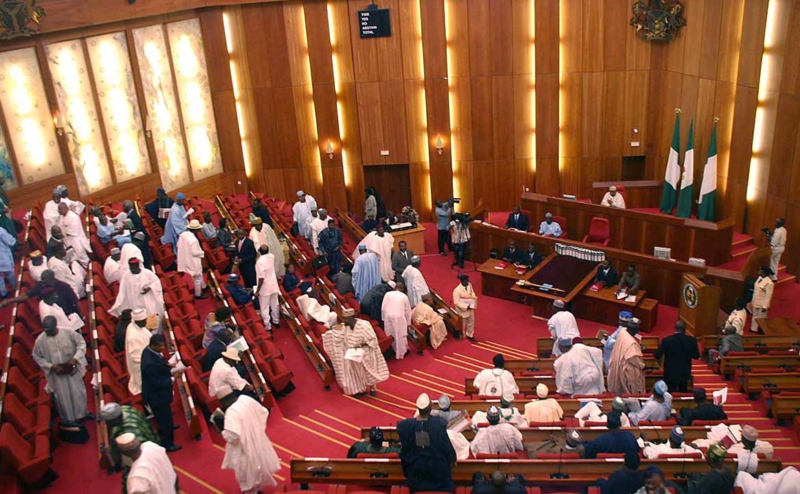The 2017 Appropriation Bill may be passed before May 2017.Chairman, Senate Committee on Appropriation, Senator Danjuma Goje, who disclosed this yesterday warned heads of Ministries, Departments and Agencies (MDAs) to desist from the practice of “mopping up” of funds at the end of March, 2017.
The lawmaker said that the lifespan of the 2016 budget would end on May 5, 2017.Goje said the National Assembly maybe compelled to extend the validity period of the budget, in the event that it is unable to pass the 2017 Appropriation Bill on or before the midnight of May 5, 2017.
He said: “Last year, when we were producing this 2016 Appropriation Bill, we realized that at the end of each year, there were usually requests for an extension of the budget from the executive. To avoid that, we decided to incorporate this new thing.
“In the 2016 Appropriation Act, which President Muhammadu Buhari signed into law, clause 11 of it says that “in line with the provisions of Section 318 of the Constitution of the Federal Republic of Nigeria 1999, as amended, this bill will run for a period of 12 months, starting from the day it is assented into law.”
The Senate committee on Appropriation, for instance, is yet to get reports from all the standing committees on the 2017 budget. Meanwhile, the National Assembly and human rights lawyer, Mike Ozekhome have asked the Economic and Financial Crimes Commission (EFCC), to show accountability by letting Nigerians know the assets it has so far recovered and their worth.
Chairman, Senate Committee on Anti Corruption and Financial Crimes, Senator Chukwuka Utazi set the tone for the demand at the maiden national anti corruption stakeholders’ summit hosted by the EFCC in Karu yesterday.
According to him, making such records available to stakeholders, especially the legislature will ensure transparency. He said the fight against corruption should be done with strategies and technical competence devoid of sensation of arrest and media trials that negate the rights of being innocent until proven guilty.
Corroborating this stance was Mike Ozekhome, whose funds are currently frozen by the commission. He said media trials are against the rule of law and should be avoided by EFCC.
Ozekhome stated that to arrest the suspect prior to getting the evidence, and keeping him in custody to extract information, force him to confess or part with certain money is not the rule of law.
“We need to know the amount being recovered because there is this belief that recovered houses are sold to cronies at give away prices,” he said.Chairman House Committee on Anti Corruption and Financial Crimes, Kayode Oladele urged the EFCC to focus more on the change of attitude among Nigerians rather than prosecution alone.
Oladele noted that with a change in the value system, a lot can be achieved better than endless amendment of laws.Keynote speaker, former Governor of Edo State, Adams Oshiomhole, commended the EFCC for its efforts so far, at fighting corruption despite the allegations of corruption leveled against its leadership.
He stated that the leadership and political will demonstrated by President Muhammadu Buhari has ensured that certain categories of people who were hitherto untouchable, are now answering to corruption charges in the courts.
Guardian
This page has been viewed 201 times


























